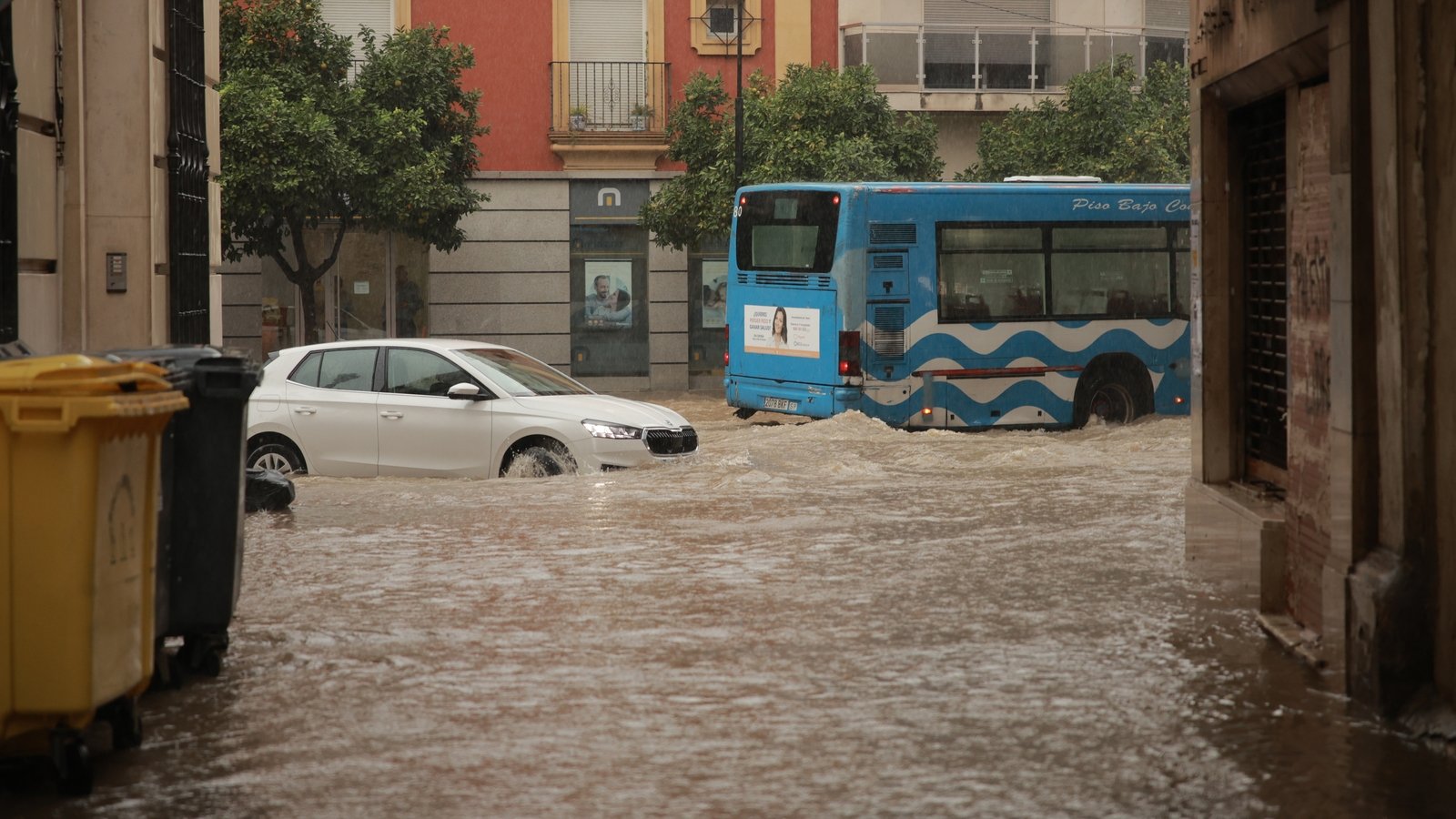Questions have been raised in Spain about how one of the world’s most developed nations failed to respond adequately to extreme storms likely to intensify as climate change accelerates.
Torrential rain that began falling at the start of the week resulted in flooding that has left at least 95 people dead, the deadliest such disaster in the country since 1973.
Emergency workers are searching for dozens of people who are unaccounted for.
Hundreds of soldiers have been deployed to help. Some areas can only be reached by helicopter.
National weather agency AEMET issued a red alert for the hardest-hit eastern Valencia region on Tuesday morning and conditions deteriorated throughout the day.
But it was only in the early evening that the regional body in charge of coordinating emergency services was set up.
An alert sent by the civil protection service urging residents in the eastern coastal city of Valencia not to leave home was issued after 8pm (7pm Irish time).
For many, it was already too late. Motorists began journeys only to find themselves trapped in their vehicles and left at the mercy of raging torrents of water.
We need your consent to load this comcast-player contentWe use comcast-player to manage extra content that can set cookies on your device and collect data about your activity. Please review their details and accept them to load the content.Manage Preferences
“They raised the alarm when the water was already here, there’s no need to tell me the flood is coming,” said Julian Ormeno, 66, who lives in the Valencia city suburb of Sedavi.
“Nobody came to take responsibility,” he added.
Government minister Angel Victor Torres declined to answer directly when asked about the potential delay in sending alerts to the population.
Three days of mourning for those who died has begun.
With weather forecasters issuing warnings beforehand, such tragedies are avoidable if people can be kept away from surging flood water, according to experts.
Experts said the storm was caused by cold air moving over the Mediterranean Sea’s warm waters, which produced intense rain clouds, a phenomenon common for the time of year.
However, they added that the warming of the Mediterranean, which increases water evaporation, plays a key role in making torrential rain more severe.
We need your consent to load this comcast-player contentWe use comcast-player to manage extra content that can set cookies on your device and collect data about your activity. Please review their details and accept them to load the content.Manage Preferences
Scientists warned that extreme weather events are becoming more intense, last longer and occur more frequently as a result of human-induced climate change.
But, in some cases, even the best-prepared warning systems can be caught off guard, they added.
Read more:
‘It was mania’ – Irish in Spain affected by floods
Striking images show devastation in Spain after floods
Spain’s deadly flooding and its links to climate change

